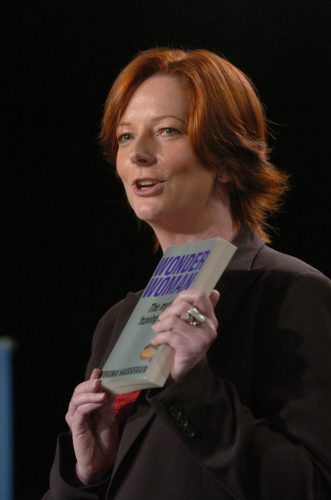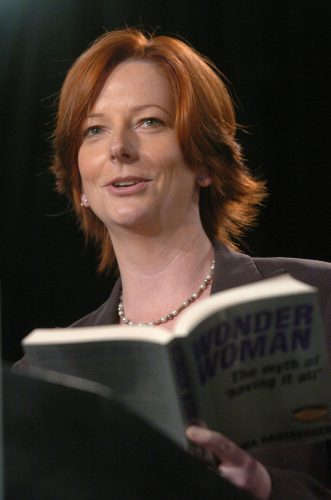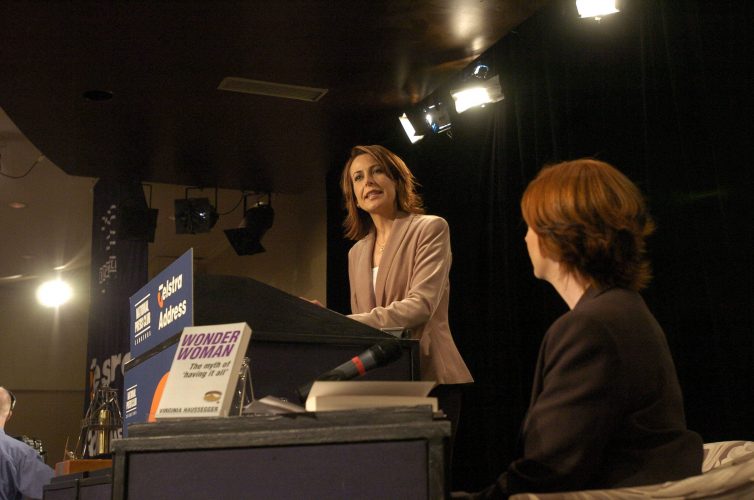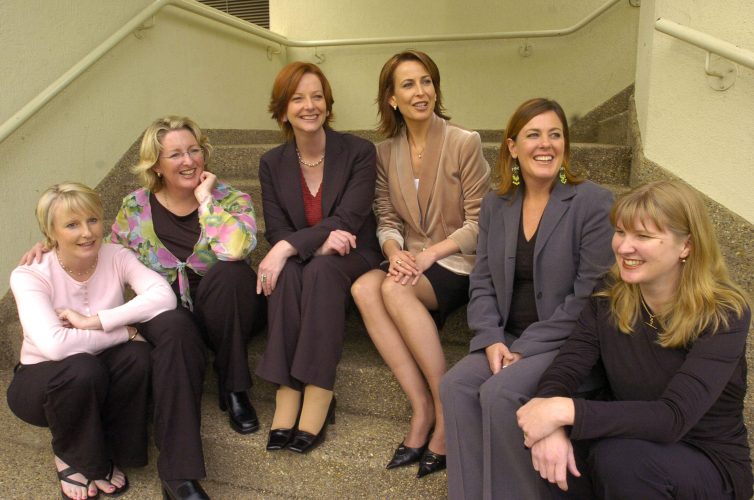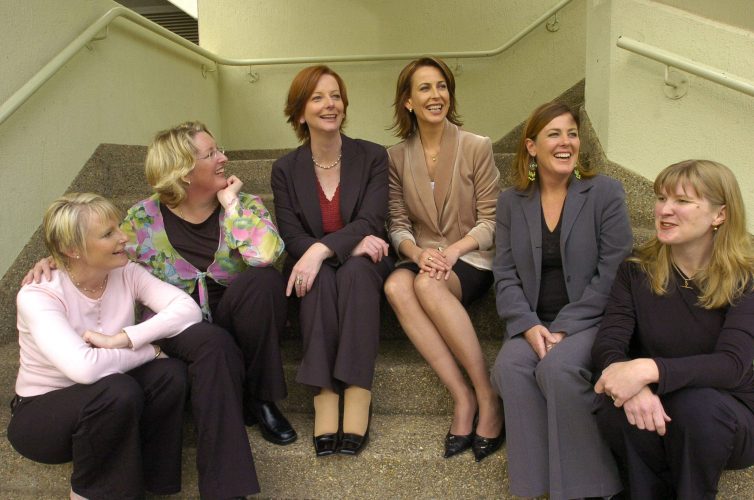To the unnamed and distressed parents of twin girls, who are litigants in a landmark case with murky references to IVF and sexual orientation – your solution is simple. Sell the baby on eBay.
What, too cumbersome? Too illegal? Well, no problem. There are numerous other ways to dispose of unwanted children.
If they’re newborn, bundling into a cardboard box and leaving the package on a hospital doorstep works. Remember the thundering headline ”How could she”. Interesting, isn’t it, how this week failed to produce a ”How could he” headline, when a startled little girl we’ve all taken into our hearts and called Pumpkin was abandoned by her father in a busy railway station.
Like Pumpkin, the unwanted child of the couple currently in court is now three years old. Given the couple live in Melbourne, perhaps they too should take a trip to the same station and dispose of their problem toddler there. At least we know the system works. The security cameras will locate her looking lost and bewildered, and the security guards seem very good at handling dumped human baggage.
Or if the couple were in Germany there are around 80 ”babyklappes” – convenient little baby hatches in the walls of hospitals, in which a baby can be placed anonymously. Theoretically the hatch is for unwanted newborns, but in Japan a toddler aged nearly four was popped in one earlier this year.
But I jest. Not about the convenience of baby disposal. That’s all true. But in relation to the litigants in Canberra to sue their doctor over the wrongful birth of one of their babies – I don’t really believe they want to dump one. Indeed, they insist quite the opposite.
After coping with a furious barrage of media abuse over their case and the seeming callousness of their complaint an unwanted child the women released a statement defending the ethics and honour of their actions. ”This case has never been a case about whether our children are loved. They are cherished.” The statement went on to explain that the case was singularly about ”the duty of care doctors have over their patients and a patient’s right only to be subject to the procedure they consented to”.
The problem here is one of a confounding morality. The women, who were living in Canberra at the time, had been in a loving and strong relationship, by their accounts, for almost a decade and by their mid- to late-30s decided that they wanted to become parents.
After failed attempts at artificial insemination, their obstetrician Dr Sydney Robert Armellin suggested IVF. The court heard that the birth mother signed a consent form for up to two embryos to be implanted, but later told Dr Armellin that she only wanted one embryo, as the couple only wanted one child.
This week Dr Armellin told the court that he swore out loud when he realised the embryologist had implanted two embryos, rather than just one, because he ”knew a mistake had been made”.
The unenviable task now for the ACT Supreme Court is to decide who wins and who loses. The women want $400,000 to compensate for the cost of bringing up an extra child.
While the doctor has acknowledged a mistake was made, he blames ”the system” for the failure of communication.
And while the so-called system will no doubt be the subject of much more talk, review and revamp, the matter that’s really at the centre of this miserable dispute may remain unexamined.
That, of course, is the strained relationship between these two women and their inability to cope with new parenthood.
The birth mother wept in court as she told of ”feeling devastated, absolutely devastated” about the unplanned twin pregnancy. She spoke of how the couple’s future plans had been thwarted. She detailed her depression, and told how the couple argued and ”had a terrible time with the stress”.
Her partner lamented the enormous change in their relationship since becoming parents. She felt her ”confident” and once ”centred” partner had now lost ”her ability to love” like she used to.
Both women seemed to be deeply disappointed and frustrated by the amount of work and tedium involved in family life.
Ultimately, neither pregnancy nor parenthood with two little girls has brought these women the joy they had hoped for.
It would seem they had big plans and well formulated ideas of what life would be like once they became parents – it just didn’t turn out that way. They had clear expectations and those expectations hadn’t been met.
The fact that they now want someone to compensate them for life throwing up something unexpected, and their inability to cope with unplanned circumstances, reeks of immature selfishness.
IVF is a modern medical miracle that sometimes works, and often doesn’t. To assume it will deliver precisely and as perfectly as ordered is at one level breathtakingly arrogant, and at another naively optimistic. So to win not once, but twice, with the prize of two healthy little baby girls seems miraculous to me. To go to court because that’s not what you ordered or planned smacks of a world gone mad.
